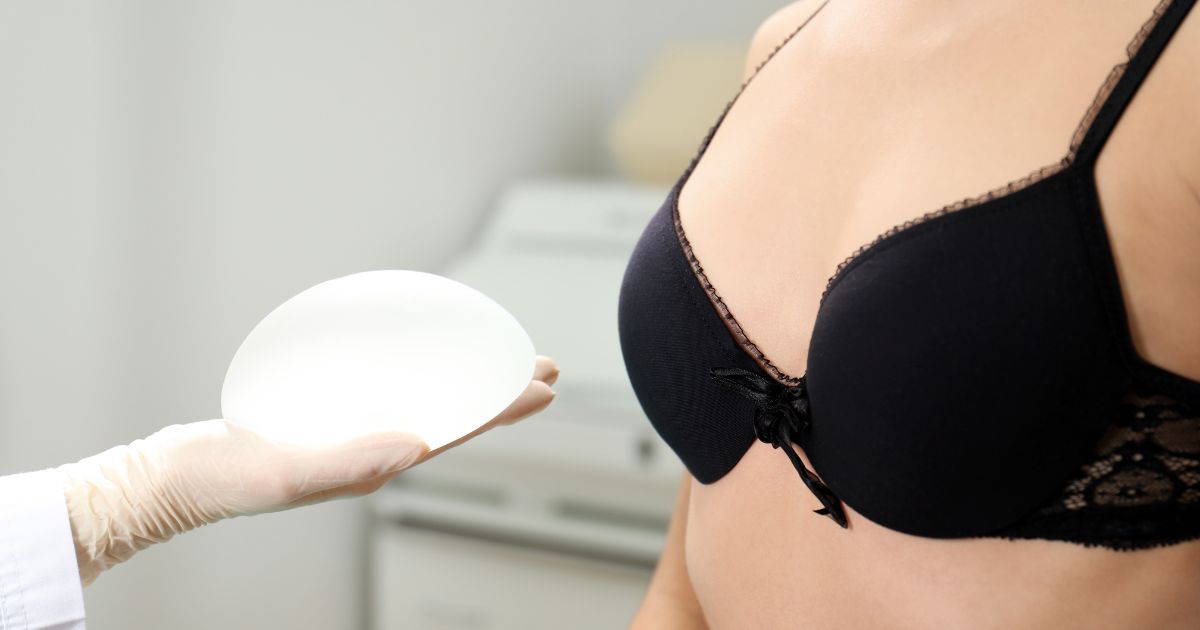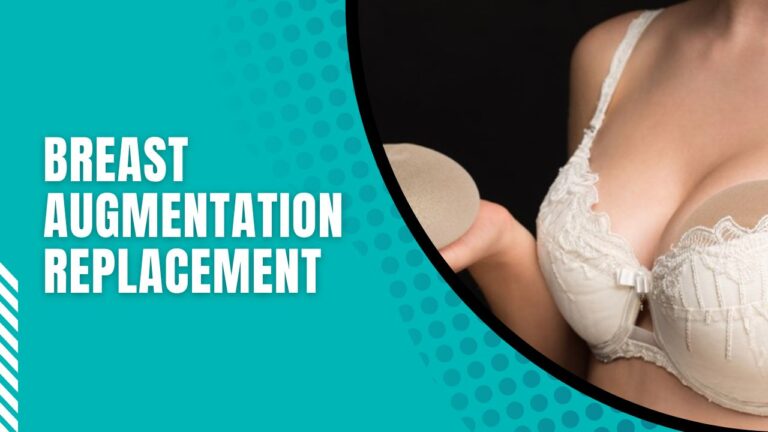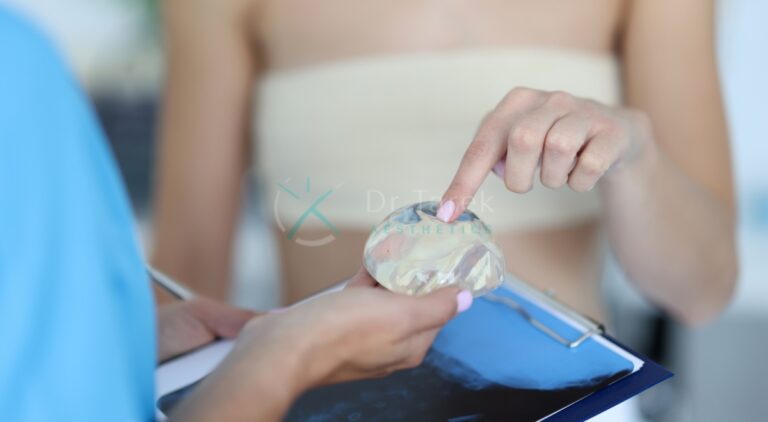Many individuals question Do breast implants expire. It’s vital to understand the lifespan of implants and the signs that indicate a need for their evaluation or replacement to ensure ongoing satisfaction and health.
Breast augmentation enhances the breasts’ size, shape, and symmetry. Understanding breast implants ‘ longevity and care requirements is crucial, as it is with any surgical treatment.
This article will teach you about Breast Implants and the Benefits and Risks of Different Implant Materials to go confidently with breast augmentation.
Do Breast Implants Expire: Understanding Their Lifespan
Understanding the longevity of breast implants is crucial for anyone considering or currently living with them. While implants are not lifetime devices, they do not have a definitive expiration date; however, the risk of complications increases over time. It’s essential to monitor for changes and consult with a healthcare provider regularly to ensure implant integrity.
Book A Consultation With Dr Tarek Bayazid
Top-rated Plastic Surgeon For Breast Augmentation in Dubai
Installment Plan Available
A Specialist Breast Augmentation Surgeon is a doctor who helps people by fixing or changing the way their chest looks. they can make it look better after an injury or illness, or change its shape if a person wants.
What are Breast Implants?
Breast implants are medical devices inserted under the breast tissue or chest muscle to increase breast size or restore breast volume lost after weight reduction, pregnancy, or ageing.
Types of Breast Implants
Silicone and saline are the two most used materials for breast implants.
Silicone Implants
These implants are filled with a silicone gel, which is consistent with human fat. They tend to look and feel more like natural breast tissue.
Saline Implants
Saline implants are filled with sterile salt water. They can be adjusted more efficiently and have a slightly firmer feel than silicone implants.
Reasons for Breast Augmentation
People choose breast augmentation for various reasons, including:
Enhancing Breast Size and Shape for Cosmetic Reasons
Breast augmentation allows women to obtain their ideal size and shape, significantly increasing their self-esteem and happiness.
Patients can achieve a natural and aesthetically pleasing look that complements their body proportions by selecting the appropriate implant size, shape, and placement.
Restoring Breast Volume: Lost Due to Weight Loss, Pregnancy, or Aging
Significant weight loss, pregnancy, and the natural ageing process can cause a loss of breast volume, leading to sagging or deflated breasts. Breast augmentation can give the breasts their youthful fullness and firmness back, giving the patient a more refreshed and youthful appearance.
Sometimes, a breast lift may be combined with augmentation to address volume loss and sagging.
Correcting Asymmetry or Deformities
Breast asymmetry is a common condition in which one breast is more extensive or differently shaped than the other. Breast augmentation can correct asymmetry by using different implant sizes or shapes for each breast, creating a more balanced and symmetrical appearance.
Additionally, breast augmentation can address congenital deformities, such as tuberous breasts or Poland syndrome, helping patients feel more confident and comfortable in their bodies.
Reconstructing Breasts After Mastectomy or Injury
Breast reconstruction following a mastectomy or injury can help restore a sense of wholeness and femininity for those who have lost one or both breasts. Breast implants can be used with other reconstructive techniques, such as tissue expanders or flap procedures, to rebuild the breast mound and create a natural-looking result.
In some cases, nipple reconstruction or tattooing may also be performed to complete the breast reconstruction process.
The Lifespan of Breast Implants
Breast implants are not lifetime; the life cycle of breast augmentation varies depending on several factors.
Silicone Implants
Silicone implants typically last 10-20 years, some lasting even longer. They are generally considered more durable than saline implants.
Saline Implants
Saline implants have a slightly shorter lifespan, averaging 10-15 years. However, some may last longer with proper care and maintenance.
Factors Affecting the Lifespan of Implants
Implant Quality
A longer lifespan can be expected from implants of higher quality and durability. Always choose a reputable manufacturer for your implants.
Surgical Technique
The skill and experience of your surgeon play a critical role in the longevity of your implants. Choose a board-certified plastic surgeon with extensive experience in breast augmentation.
Lifestyle Factors
Lifestyle factors such as maintaining a stable weight, avoiding smoking, and wearing well-fitting bras, can also impact the lifespan of your implants.
Signs That Your Implants May Need Replacement
Some warnings that it’s time to get new implants include:
Risks and Complications of Implant Replacement
Implant replacement surgery carries the same inherent dangers and possible issues as any other type.
Some potential risks include:
Discuss the risks and benefits of implant replacement with your surgeon to make an informed decision. Reveal Your Sparkle at Dubai’s Elite Aesthetic Clinic, where you can get treatments to make your skin glow. It’s a special place in Dubai that helps people look their best. 300cc breast augmentation effects include making the breasts look bigger and fuller and can boost confidence and self-esteem
Breast implants waviness can happen when the implant moves or shifts under the skin making the breast look uneven or rippled this effect is more noticeable in women with thin skin or little natural breast tissue
Maintaining Your Breast Implants
To prolong the lifespan of your breast implants and reduce the risk of complications, follow these maintenance tips:
Regular Check-ups
Plan regular appointments with your plastic surgeon to check on the progress of your implants and discuss any issues that may emerge.
Mammograms and Ultrasounds
Undergo routine mammograms and ultrasounds as your surgeon recommends to detect any potential implant issues.
Self-examinations
Perform regular self-examinations to monitor any changes in the appearance or feel of your breasts. Report any unusual findings to your surgeon.
Breast implants can provide long-lasting results, but they are not for a lifetime. Understanding the factors affecting their lifespan and maintaining them can help you enjoy the benefits of breast augmentation for many years. Consider speaking with a board-certified plastic surgeon if you are considering breast augmentation or are concerned about existing implants.
Ready to take the next step towards achieving your ideal breast appearance? Request a quote from the experienced professionals at Dr Tarek Bayazid and begin your personalised breast augmentation journey today.







